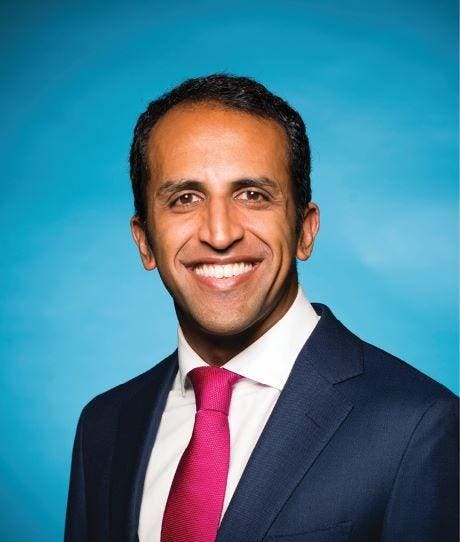Innovator Vasu Raja is out after 20 years at American.
Vasu Raja seemed like a breath of fresh air when he took over as American Airlines senior vice president of strategy in October 2019. He advocated for a Boston hub. He advocated for a Northeast operating agreement with JetBlue. He advocated for a Seattle hub partnership with Alaska. In perhaps his boldest move, in February 2020 he advocated for a Seattle-Bangalore flight.
Within weeks, every plan was upended by the pandemic. (Later, a misguided judge upended the JetBlue alliance.) For the pandemic, Raja devised an innovative and distinctive strategy. While competitors pulled back, American ramped up Sunbelt flying, pushing beach-happy customers through its Charlotte and Dallas hubs.
Unfortunately, another Raja innovation was to advocate for a plan where American corporate customers were pushed to book through the carrier’s site rather than through travel agencies. American dismantled its corporate sales division in favor of “NDC” for new distribution capability.
The strategy failed and Raja paid the price for it. American said Tuesday that he will depart in June, leaving the job as chief commercial officer that he took over in April 2022. He joined American in 2004.
At an investor conference on Wednesday, CEO Robert Isom formally gave up on NDC. He said American would move quickly to restore its previous corporate strategy. Speaking of Delta and United, he said, “Others are benefitting from what we’ve done over the last six months. We’ll get that back. I know for a fact we can recapture what we’ve ceded to others.”
To start, American has already ditched a plan to restrict mileage points for some travel agency tickets. “Our approach has driven customers away from American,” Isom said. “We’re unequivocally committed to getting those customers back.”
As for Raja, Isom said, “I’ve known Vasu for a long time. I admire his creative thinking, his passion. He’s an innovator, a disruptor, he’s a good friend. But sometimes we need a reset.
“ I am passionate about executing,” Isom said. “We will absolutely innovate. We will swing for the fences. It’s essential in this business.” However, he said. “We have to produce in the short term.”
It was a distinct change of direction for a newly empowered Isom, just weeks after American reported that he was paid $31.4 million in 2023. He has always been focused on schedule reliability. But now, he said, his role will expand.
“I’ve been around this business a long time,” he said. “You’re going to see me devoting a lot of attention to how we produce revenue day in and day out.”
Isom took responsibility for the corporate customer strategy fiasco, but said it must change. “They were my strategies,” he said. “I believe they are absolute the right ones.” However, “It’s very clear that we have driven some customers away. We have restricted customers from using our product. Those are the kinds of things we have to be attentive to.”
Wall Street took a dim view of American’s announcement on Tuesday that it had cut its revenue and profit forecast for the second quarter, normally the best quarter for airlines. Shortly after midday, American shares were down about 14% to $11.53.
It’s the second time Isom has been in the middle of an executive displacement at American. In 2016, President Scott Kirby was asked to leave and Isom replaced him. Kirby quickly moved on to become CEO of United Airlines.
Dennis Tajer, spokesman for Allied Pilots Association, which represents American pilots, said Isom needs to look beyond the single corporate ticketing sales failure. “American’s trailing results are more than just a failed strategy to sell corporate tickets,” he said. “United and Delta have better long-haul international strategies. Vasu wanted a domestic and short-haul international airline and said our partners can take you long-haul. That’s not working.
“Now Robert Isom has taken full responsibility,” Tajer said. “He has come into the cockpit and said ‘This is my airplane.’”

